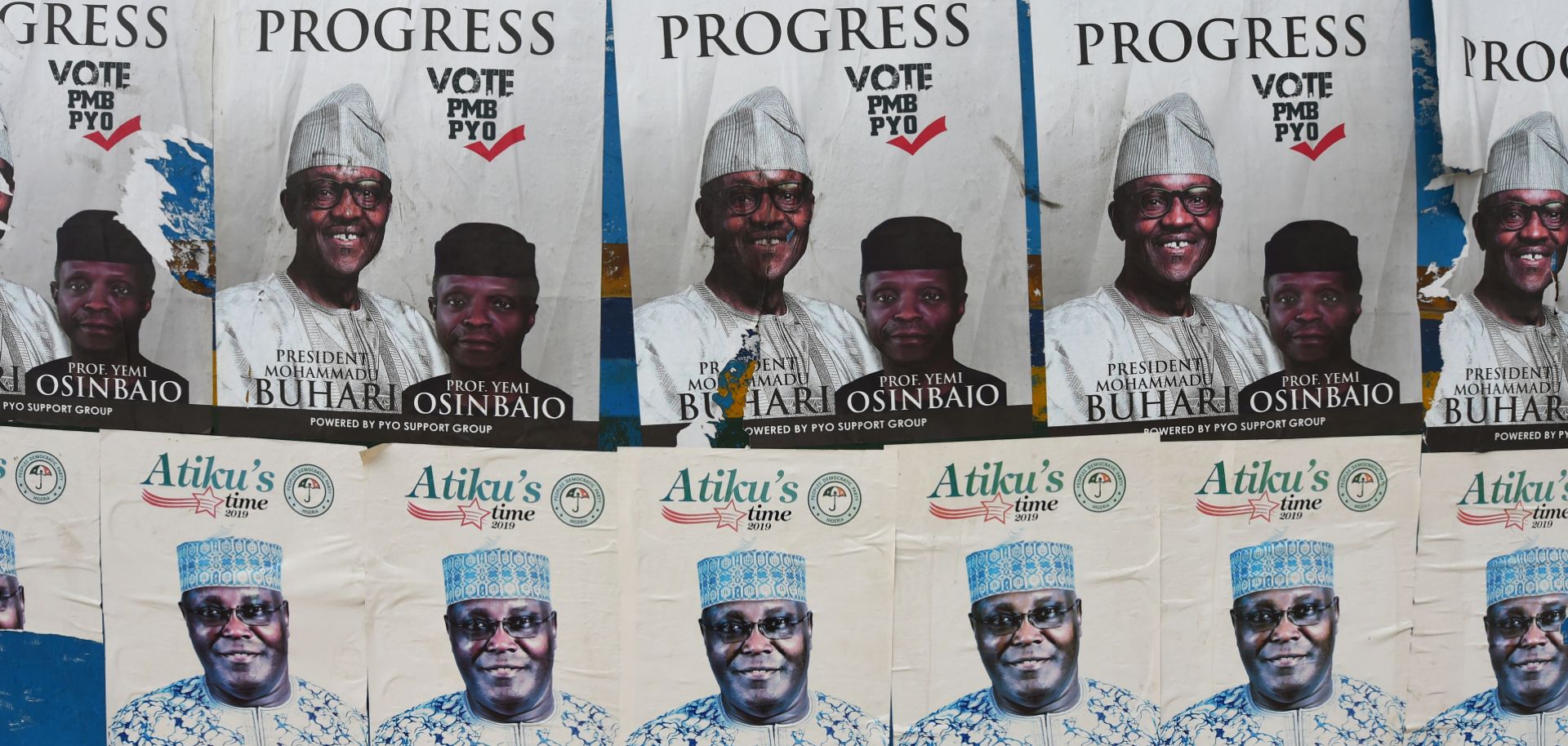COLUMNS
Nigeria’s Election Will Threaten Its Security, Regardless of Who Wins

Feb 12, 2019 | 10:00 GMT

Campaign posters for Nigeria's incumbent president Muhammadu Buhari line a bus station above posters for his main challenger, Atiku Abubakar.
(PIUS UTOMI EKPEI/AFP/Getty Images)
Highlights
- The political flux surrounding Nigeria's upcoming election has created space for regional and sectarian conflicts to flare up.
- The country's northeast region will face increased violence from Islamic State supporters, while a peace arrangement that has previously kept conflict quiet in the Niger Delta region is being put to the test.
- While Islamic militants' expansion attempts could pose security threats to Abuja and Lagos, protests and political unrest following the election are far more likely to disrupt major urban areas.
Subscribe Now
SubscribeAlready have an account?
